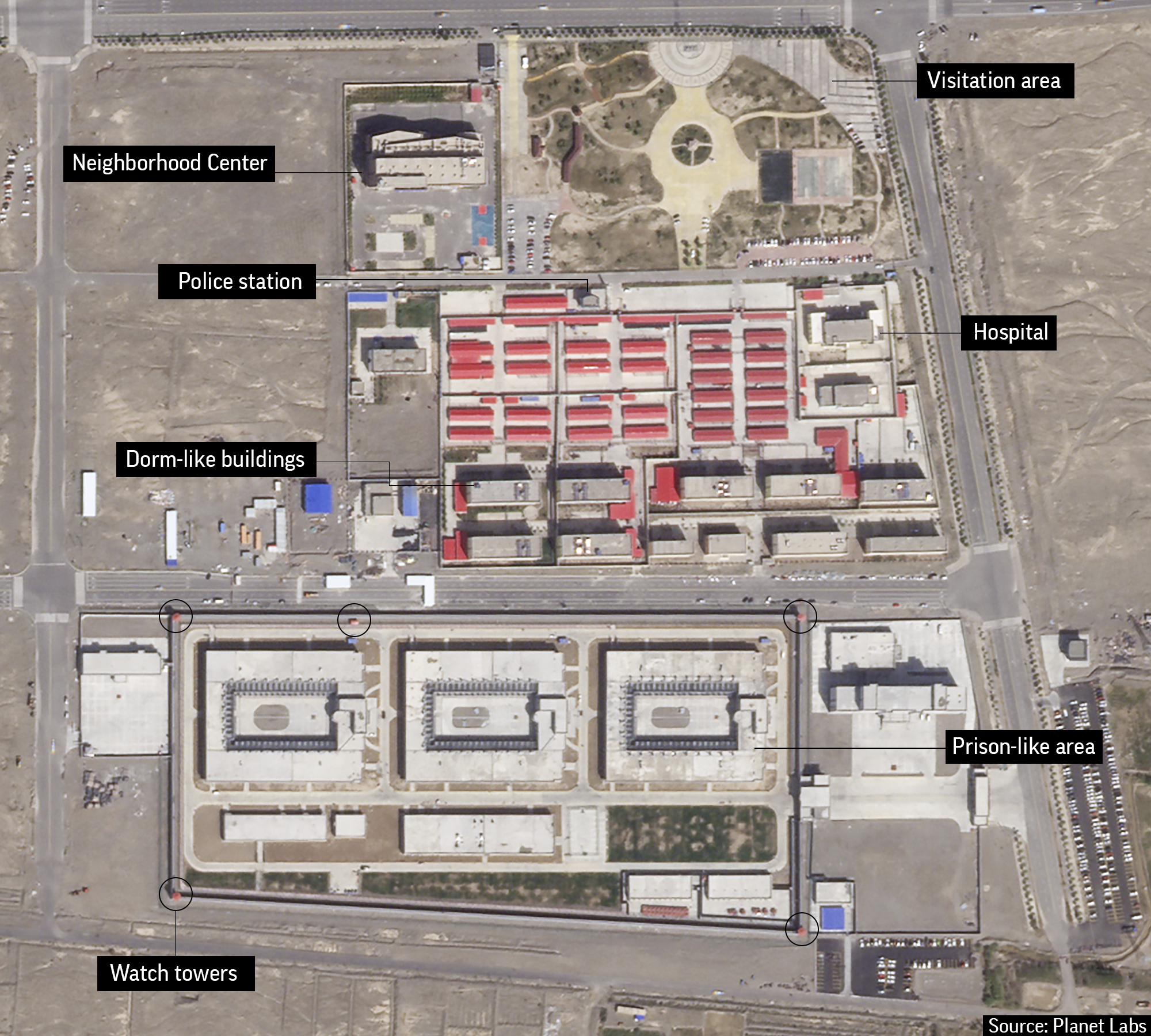
In this Sep. 17, 2018, satellite image released by Planet Labs, buildings are seen around the Kunshan Industrial Park in Artux in western China’s Xinjiang region. This is one of a growing number of internment camps in the Xinjiang region, where by some estimates 1 million Muslims are detained, forced to give up their language and their religion and subject to political indoctrination. Now, the Chinese government is also forcing some detainees to work in manufacturing and food industries. Some of them are within the internment camps; others are privately owned, state-subsidized factories where detainees are sent once they are released. (Planet Labs via AP)
BEIJING — The U.S. government said Tuesday it is reviewing reports of forced labor at a Chinese detention camp where ethnic minorities must give up their religion and language and may be subject to political indoctrination.
U.S. Customs and Border Protection said in a statement that reporting by The Associated Press and other media “for the first time appears to link the internment camps identified in Western China to the importation of goods produced by forced labor by a U.S. company.”
The AP tracked shipments from a factory in a detention camp in China’s Xinjiang region to Badger Sportswear in North Carolina. The company ships clothing to universities, colleges and schools around the United States.
In this Monday, Dec. 3, 2018, photo, a guard tower and barbed wire fences are seen around a facility in the Kunshan Industrial Park in Artux in western China’s Xinjiang region. This is one of a growing number of internment camps in the Xinjiang region, where by some estimates 1 million Muslims are detained, forced to give up their language and their religion and subject to political indoctrination. Now, the Chinese government is also forcing some detainees to work in manufacturing and food industries. Some of them are within the internment camps; others are privately owned, state-subsidized factories where detainees are sent once they are released. (AP Photo/Ng Han Guan)
Following the reports, Badger said it had suspended business with the Chinese supplier and was investigating.
The Washington-based Workers Rights Consortium, which has agreements with many educational institutions to make sure products they sell on campus are ethically manufactured, said that “forced labor of any kind is a severe violation of university codes of conduct.”
It’s against U.S. law to import products of forced labor. Customs and Border Protection said it is part of its mission to enforce “both laws to protect individuals from forced labor and our Nation’s economy from businesses profiting from this form of modern slavery.” /kga